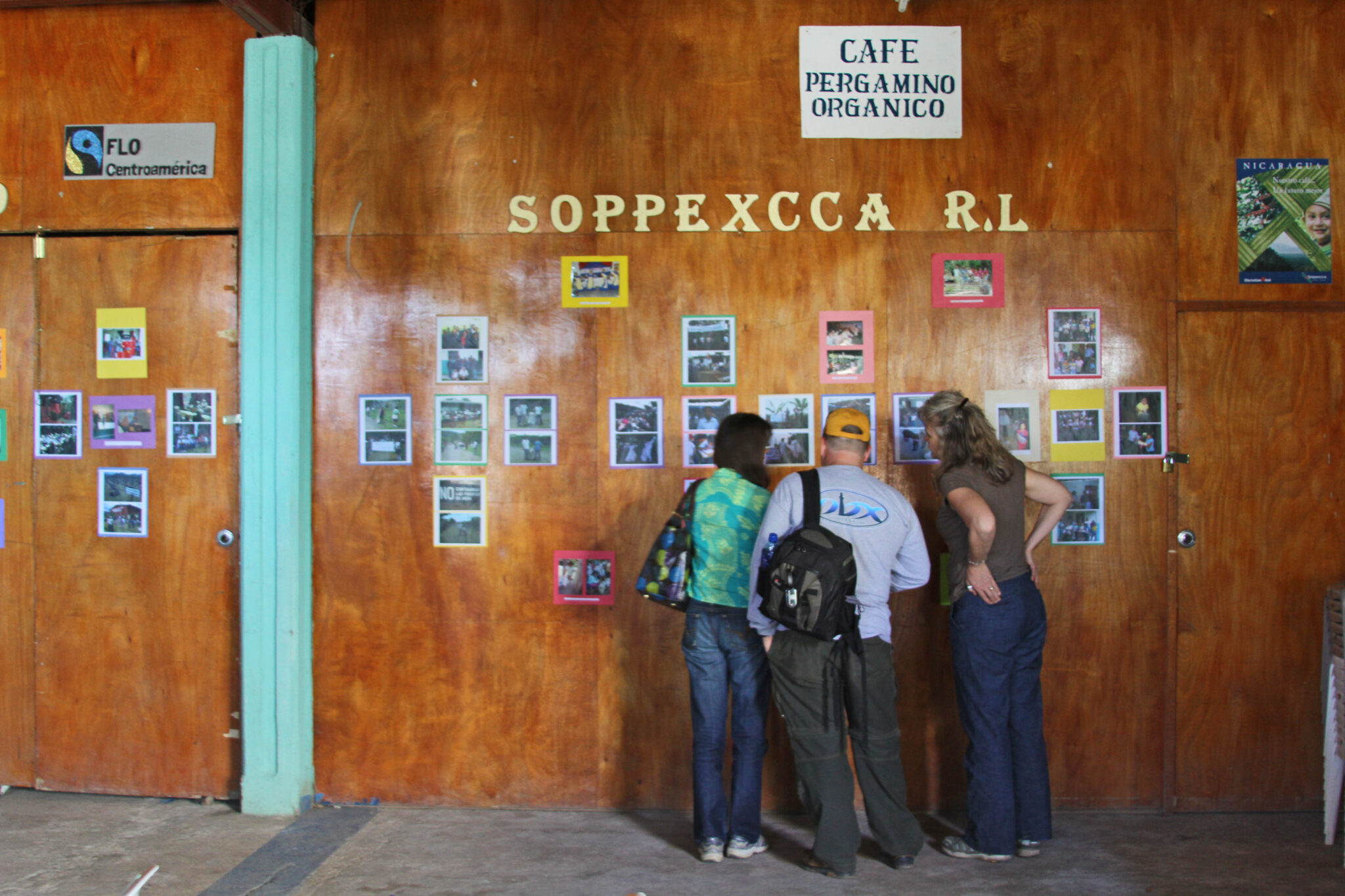Fátima Ismael became the manager of SOPPEXCCA in 1997, the same year as its founding. Credit: Root Capital
Established in 1997 with 68 coffee farmers, SOPPEXCCA is a Fair Trade and organic-certified coffee cooperative based in Jinotega, Nicaragua. Today, the business has 650 members – 40% of whom are women.
Gender equity is a priority for Fátima Ismael, who has served as General Manager since the cooperative’s founding. The organization produces Las Hermanas (The Sisters) coffee, a Fair Trade-certified brand supplied by women producers. A portion of its profits are invested in cervical cancer prevention programs, directly benefiting women in the cooperative.
The Challenge
Women in Nicaragua’s coffee industry often face discrimination, despite playing a key role in the value chain. Gender inequalities restrict women’s access to land and resources, which in turn prevents them from achieving financial independence. Particularly in emerging markets, women are underrepresented in the financial system and often struggle to access capital. According to the International Finance Corporation, women-owned small and medium businesses face an estimated credit gap of $1.4 to $1.7 trillion. However, as any business owner knows, access to credit is crucial.
“A woman’s independence can only be achieved through economic independence and awareness,” explains Fátima. “Credit is essential in order to survive.”
In order to help its members gain access to this essential credit, SOPPEXCCA decided to partner with Root Capital.

Visitors peruse photos of SOPPEXCCA’s members and certification at their offices in Jinotega, Nicaragua. Credit: Root Capital
Our Collaboration
SOPPEXCCA first became a Root Capital lending client in 2003. For nearly every year since, it has received annual loans and/or lines of credit, and in 2012 it began utilizing Root Capital’s advisory services.
In 2022, SOPPEXCCA requested gender equity advisory support to identify gender gaps at the cooperative, develop a gender equity strategic action plan, and implement inclusive policies and practices. A key objective of its gender action plan is to develop leaders committed to strengthening the participation of women and youth in management and decision-making positions across its 16 member cooperatives.
Earlier this year, SOPPEXCCA participated in “new masculinities,” a new component of Root Capital’s gender advisory. Aimed at men in leadership positions, this training offers tools for individuals and organizations to unlearn patriarchal attitudes and behaviors and take action to increase gender equity and women’s participation across the cooperative.
The Impact
Fátima’s belief that women’s independence results from economic autonomy has proven true. Strengthened by Root Capital’s credit and advisory services, SOPPEXCCA has helped affiliated women farmers gain titles to land and produce, and manage and market their own coffee.
“Through SOPPEXCCA, many of us have benefited and our lives have changed,” says cooperative member Adelila Lumbí Hernández. Ana María González Narváez, a member of a cooperative that supplies coffee beans to SOPPEXCCA, agrees.
“Before I was involved with SOPPEXCCA, I was very humble,” Ana María says. “I didn’t want anyone to ask my opinion. Now, I dare anyone to try and stop me!”
SOPPEXCCA is also active in youth engagement and organized community programs that create positive ripple effects across the whole community. “In our model, several generations are integrated,” explains Fátima. “This movement has produced coffee inspectors, baristas, quality control advisors, and others. SOPPEXCCA has set up the Muchachitos del Café (Children of Coffee) program, a pilot project in five schools to develop alternative structures of leadership, participation, environmental education, culture, and sport.”
Through its partnership with Root Capital, SOPPEXCCA has improved the livelihoods of women, provided stable and rewarding career opportunities for young people, and helped preserve local culture. As the cooperative looks to the future, the benefits of this collaboration will reach an increasing number of Nicaraguan coffee farmers.
